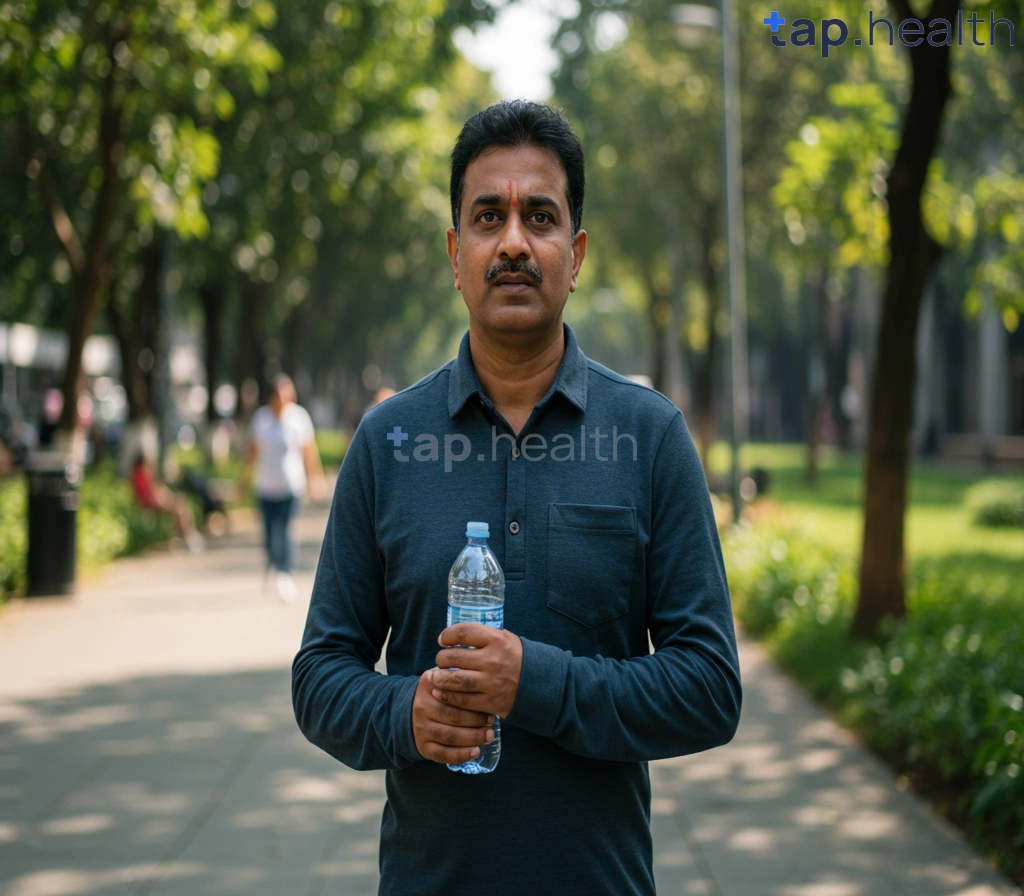Table of Contents
- Effective Communication Strategies for Diabetes Management
- Building a Strong Support System for Your Diabetes Journey
- Navigating Diabetes: A Guide to Open Communication with Loved Ones
- Conquering Diabetes Challenges: Tips for Improved Self-Management and Support
- Is Your Support System Helping You Manage Diabetes? A Self-Assessment
- Frequently Asked Questions
- References
Living with diabetes can feel like navigating a complex maze, but you don’t have to do it alone. Mastering Diabetes: Your Guide to Effective Communication and Support is your roadmap to a more confident and manageable life. This blog is designed to empower you with the knowledge and strategies you need to effectively communicate your needs to healthcare professionals, family, and friends. We’ll explore practical tips for building a strong support system and advocating for yourself, ultimately leading to better diabetes management and improved overall well-being. Let’s begin our journey towards a healthier, happier you!
Effective Communication Strategies for Diabetes Management
Effective communication is crucial for managing diabetes, especially in diverse populations like those found across India and tropical countries. Understanding the nuances of communication is vital, given that 61% of people with diabetes are aged between 20-64, a group often balancing work, family, and health concerns. This demographic requires clear, concise, and easily accessible information. For the remaining 39%, aged 65 and above, communication needs to be adapted to account for potential age-related factors impacting comprehension and technology access.
Open and Honest Dialogue
Open communication with healthcare providers is paramount. Don’t hesitate to ask questions about your treatment plan, medication side effects, or lifestyle adjustments. Active listening during consultations ensures you fully understand your doctor’s instructions. In many Indian and tropical contexts, family plays a significant role in healthcare decisions. Including family members in these conversations can foster a supportive environment and ensure consistent care.
Utilizing Technology and Resources
Leveraging technology, particularly mobile applications and online resources, can significantly improve diabetes management. Many individuals within the 20-64 age group are digitally literate and can benefit from such tools. However, accessibility remains a challenge, especially in rural areas. Exploring locally available resources and adapting communication methods to suit varying levels of technological literacy is key. Consider providing information in multiple formats, like printed materials alongside digital resources. For more practical tips, you might find 10 Proven Tips for Effective Diabetes Management helpful.
Community and Support Networks
Connecting with support groups and diabetes communities can provide invaluable emotional and practical support. Sharing experiences and learning from others who understand the challenges of managing diabetes can be incredibly beneficial. In many Indian and tropical countries, strong community ties exist, making this a particularly effective approach. Finding a local support group or online forum can significantly improve adherence to treatment plans and overall well-being. Remember that effective communication is a two-way street; actively participate and share your experiences. Furthermore, learning more about how diabetes education enhances health outcomes can empower you to take control of your health.
Building a Strong Support System for Your Diabetes Journey
Managing diabetes, especially Type 2, which often stems from insulin resistance affecting over 80% of sufferers, requires more than just medication and diet. A robust support system is crucial for navigating the challenges and maintaining long-term health, particularly in the context of Indian and tropical climates where access to resources and specific dietary needs may differ. Building this network is vital for sustained success.
Seeking Support Within Your Community
In many Indian and tropical communities, strong family ties are the cornerstone of support. Openly communicating your diagnosis with family members can lead to better understanding and practical assistance. This could involve help with meal preparation, medication reminders, or simply emotional encouragement. Consider joining local diabetes support groups; these groups often offer invaluable peer support and practical advice tailored to the specific challenges faced in your region. Sharing experiences and learning coping mechanisms from others in similar situations can be incredibly empowering.
Leveraging Technology and Resources
Modern technology offers many avenues for support. Online forums, mobile apps, and telehealth services can connect you with healthcare professionals and other individuals managing diabetes. These platforms can provide access to valuable information, educational resources, and ongoing monitoring tools, which are especially helpful in regions with limited access to specialized healthcare. Remember to always verify the credibility of online sources and prioritize advice from qualified medical professionals. Actively seeking and utilizing these resources can significantly improve diabetes management. As you age, the challenges of managing diabetes may change; consider reading more about Managing Diabetes as You Age: Challenges and Solutions to proactively address potential issues. Maintaining a strong immune system is also crucial, so learn more about Boosting Immunity While Managing Diabetes.
Prioritizing Self-Care
Finally, remember that self-care is not selfish; it’s essential. Prioritizing activities that promote mental and emotional well-being, such as yoga, meditation, or spending time in nature, can significantly improve your overall health and ability to manage your diabetes. In the context of hot and humid climates, mindful hydration and regular physical activity adapted to the weather conditions are key. Building a strong support system is a proactive step towards a healthier and more fulfilling life with diabetes.
Navigating Diabetes: A Guide to Open Communication with Loved Ones
Living with diabetes, especially in Indian and tropical countries, presents unique challenges. Open communication with family and friends is crucial for effective management and support. The startling statistic that 50% of diabetes cases worldwide remain undiagnosed, as highlighted by the International Diabetes Federation, underscores the importance of proactive conversations. Many individuals in these regions might face cultural barriers or stigma associated with chronic illnesses, making open dialogue even more critical.
Building Bridges of Understanding
Firstly, choose the right time and place for a conversation. A relaxed, private setting fosters trust. Secondly, educate your loved ones about diabetes. Explain the condition in simple terms, focusing on its impact on your daily life. Sharing reliable resources, such as pamphlets from local health organizations or reputable online materials in your preferred language, can be highly beneficial. Understanding how diabetes affects your daily life, including the need for careful meal planning, is crucial. For instance, learning to manage addressing emotional eating in diabetes can be a significant step towards better self-management.
Addressing Concerns and Misconceptions
In many Indian and tropical communities, traditional remedies and beliefs might coexist with modern medicine. Acknowledge these perspectives respectfully, while emphasizing the importance of adhering to prescribed medical treatments. Address any misconceptions about diabetes management and nutrition gently and patiently. Explain how their support, whether it’s helping with meal preparation or providing emotional encouragement, can significantly impact your well-being. This is especially important when considering the challenges of maintaining a healthy lifestyle while traveling with diabetes.
Seeking and Accepting Help
It’s vital to remember that seeking help is a sign of strength, not weakness. Encourage open communication about challenges you face, whether it’s managing blood sugar levels, coping with symptoms, or navigating social situations. Your loved ones can offer practical assistance and emotional support, reducing the burden and improving your overall quality of life. Create a support network that understands your needs and empowers you to live a fulfilling life with diabetes. Remember, open communication is the cornerstone of effective diabetes management, particularly within the unique cultural contexts of India and other tropical regions.
Conquering Diabetes Challenges: Tips for Improved Self-Management and Support
The global burden of diabetes is staggering, rising from 200 million in 1990 to a staggering 830 million in 2022, according to the World Health Organization. This dramatic increase highlights the urgent need for effective diabetes management, especially in regions like India and other tropical countries where the prevalence is particularly high. Successful self-management requires a multi-pronged approach focusing on communication, support systems, and lifestyle changes.
Effective Communication is Key
Open communication with your healthcare team is paramount. Clearly articulate your concerns, symptoms, and challenges. Don’t hesitate to ask questions about your medication, diet, and exercise plans. In many Indian and tropical settings, familial support is crucial. Engage your family in your diabetes journey; educate them about the disease and involve them in your care plan. This open dialogue fosters understanding and promotes consistent support.
Building a Strong Support System
Finding a support group can significantly improve your diabetes management. Connecting with others facing similar challenges provides emotional support, practical advice, and a sense of community. Many online and local support groups cater specifically to the needs of people with diabetes in India and other tropical countries, offering culturally relevant information and resources. Consider seeking support from a registered dietitian or diabetes educator who can provide personalized guidance on dietary modifications tailored to your regional food preferences. For more practical tips, check out our guide: 10 Proven Tips to Effectively Manage Diabetes | Simple Guide.
Actionable Steps for Better Self-Management
Prioritize regular blood glucose monitoring to track your progress and make necessary adjustments to your treatment plan. Incorporate regular physical activity into your daily routine, even if it’s just a brisk walk. Focus on a balanced diet rich in fruits, vegetables, and whole grains, mindful of traditional dietary practices in your region. Remember, consistent effort and proactive engagement are key to managing diabetes effectively. Seeking professional guidance and building a strong support network are essential steps in your journey toward a healthier life. Managing stress can also significantly impact your diabetes control; learn more in our blog on Effective Stress Management Tips for Better Diabetes Control.
Is Your Support System Helping You Manage Diabetes? A Self-Assessment
Managing diabetes effectively in hot and humid climates like those prevalent in India and other tropical countries requires a multifaceted approach. Beyond medication and diet, a strong support system plays a crucial role in achieving and maintaining healthy blood pressure and blood glucose levels. Are you getting the support you need? This self-assessment will help you determine if your current support network is truly beneficial to your diabetes management.
Assessing Your Support Network
Consider these questions: Do your family and friends understand the challenges of living with diabetes? Do they actively help you manage your blood sugar levels, for example by encouraging healthy eating and regular exercise? Do they support your efforts to maintain a blood pressure below the recommended 140/90 mmHg, or even ideally below 130/80 mmHg as some guidelines suggest? Remember, consistent support is vital for long-term success. Do they help you navigate stressful situations, which can significantly impact blood sugar control? Do they accompany you to doctor’s appointments? Do they understand the importance of regular blood glucose monitoring and medication adherence? Managing cholesterol is also crucial, and you can learn more about How to Manage Cholesterol Levels with Diabetes?
Taking Action
Honest reflection on these points will reveal areas where your support system might need improvement. If you find gaps in your support network, don’t hesitate to reach out to others for help. Consider joining local diabetes support groups—many exist in Indian and tropical communities—or seeking counseling to improve communication with your loved ones. Remember, effective communication is key to ensuring your support system truly understands your needs and can assist you in maintaining optimal health and managing your diabetes effectively. Building a strong, knowledgeable support network will empower you to navigate the challenges of diabetes successfully in any climate. For personalized strategies, check out Personalized Diabetes Control: Your Key to Better Health.
Frequently Asked Questions on Mastering Diabetes: Your Guide to Effective Communication and Support
Q1. What is the most important aspect of managing diabetes in diverse populations?
Effective communication and a strong support system are crucial. Open dialogue with healthcare providers and family, incorporating shared decision-making, is key.
Q2. How can technology help in diabetes management, and what are the challenges?
Technology and resources can be beneficial, but accessibility and adaptability to varying technological literacy levels are essential. Not everyone has equal access to technology.
Q3. What role does community support play in successful diabetes management?
Community support groups provide invaluable emotional and practical assistance. Connecting with others facing similar challenges offers significant benefits.
Q4. What self-care strategies are particularly important for long-term diabetes well-being?
Stress management and mindful lifestyle choices adapted to the climate are vital. Self-care is a cornerstone of effective diabetes management.
Q5. How can I build a robust support network for managing my diabetes?
A strong support network encompasses family, healthcare providers, community groups, and accessible technology. Actively engage with all available resources.
References
- A Practical Guide to Integrated Type 2 Diabetes Care: https://www.hse.ie/eng/services/list/2/primarycare/east-coast-diabetes-service/management-of-type-2-diabetes/diabetes-and-pregnancy/icgp-guide-to-integrated-type-2.pdf
- Children with Diabetes : A resourse guide for families and school. : https://www.health.ny.gov/publications/0944.pdf




